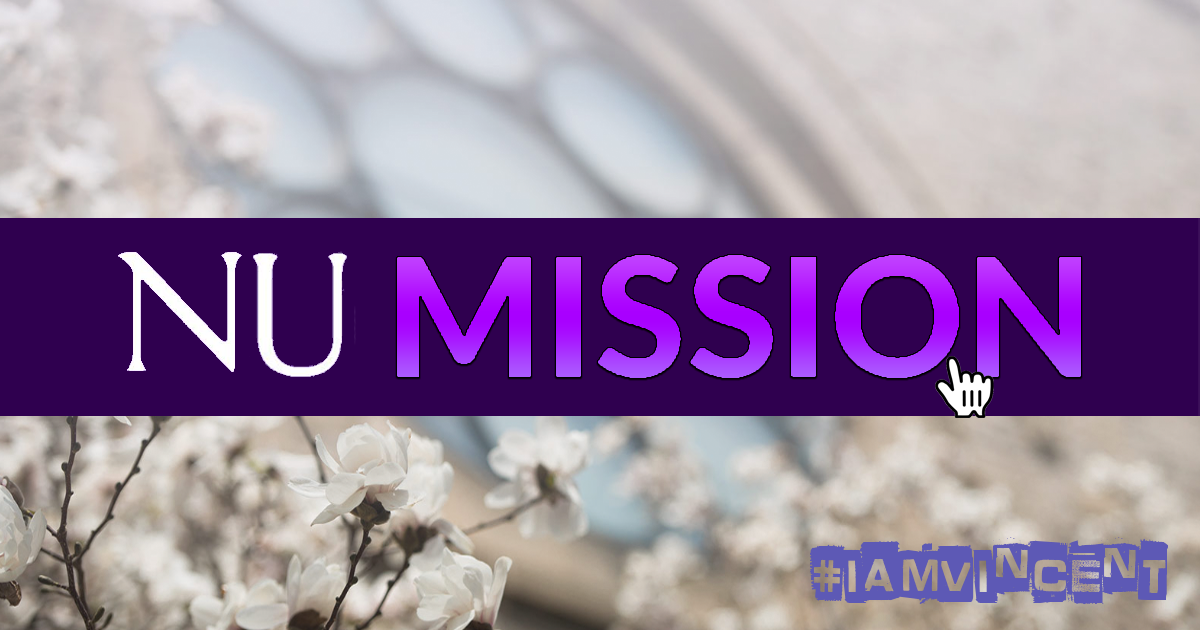How many of us fully understand what a Vincentian is or does? Being a student at Niagara University, I was assumed to have known what the mission of my school is for its student body. After attending NU for three years now, I’ve come to notice that not many people outside of NU understand the term “Vincentian,” which I hope will change after this post.

During my freshman year, I wanted to step out of my comfort zone so I forced myself to sign up for a mission trip over spring break. I would be going to Macon, Georgia, for seven days. I had always talked to my parents about wanting to go on a mission trip to help those who need it, but never thought about when it would really happen. During the application process, I was on a roll answering every question confidently until one of them asked what I thought being a Vincentian was – I was stumped. I knew NU was a Vincentian school but I never gave much thought into the actual mission of a Vincentian. I had gone to private Catholic schools my whole life and doing community service, so I assumed being a Vincentian was along the lines of what Catholics or Christians were called to do.
I immediately Googled the definition of a Vincentian and came across stvincentdayton.org; “Our members believe that being a Vincentian is a vocation – something that we live 24 hours a day, seven days a week. Whether we are teachers, parents, engineers, or accountants, to have a Vincentian vocation means that we understand that everything that we have – skills, talents, material goods – comes from God, and that we are called as Christians to use those resources to reduce the suffering experienced by our brothers and sisters in our community and around the world.” Don’t get discouraged, the definition I found was long and I thought I had understood that Vincentians basically just help the poor but I had learned so much more within the next couple of weeks.
After getting on a plane with 13 strangers, I had no idea the knowledge I was about to gain. This trip consisted of volunteering at a day shelter in the poor area of Macon and helping organize a thrift store that was soon to open. We even helped clean up an elementary school.
At the homeless shelter, we had certain jobs each day. From waking up at 5 a.m. to help manage the shower schedule, to helping people find jobs and work on computer skills, to cooking and talking with the people there, I soon understood what being a Vincentian really was about. Yes, it is about helping the poor through our gifts and talents the Lord gave us but, most importantly, it is about learning about the poor and gaining knowledge from them. I gained an understanding of the past of each person I talked to and worked to make their day a little better, but, somehow, I left Georgia thinking that my life had been made better by engaging with the people. Being a Vincentian is a way of life. Wanting to follow in Christ’s footsteps, through engaging with the less fortunate and learning what they have to offer, is how I now define being a Vincentian.
To think that just four semesters ago I was clueless on knowing what a Vincentian was makes me realize how much I was missing out on until I decided to go on that trip. Since then, I have volunteered at the soup kitchen through Campus Ministry, I have gotten more involved with community service back in my hometown, and I have gone on a second mission trip to Panama for 10 days with Campus Ministry.
I came back from Georgia not only with my own understanding of being a Vincentian, but also finding more of myself. Isn’t that what college is about? I strongly encourage each and every one of you to attend a mission trip or even volunteer at the soup kitchen, or simply get involved in the community of your hometown. Go find your understanding of what it means to be a Vincentian.
Source: Niagara University web site







Inspiring story. Keep it up.
I grew u. In a neigorhood. Wher the. Vincentians staffed the parish. -pe High school
And St. John’s University. I Grew to know many Vincentians. Over the years Athough it is a long time ago Many of the Vincentians were like.second Fathers. To me and other. Youth my age. we loved themand I return we were loved by them too.—One of the things That was a little disturbing. Was that they came and went very quickly. And for most part closure or just saying good bye. Was impossible. And wasn’t encouraged —I realize. Things are different in this regard as they should be. Today. As a Retied personI am ever so grateful for knowing. Them Thanks JimBurke